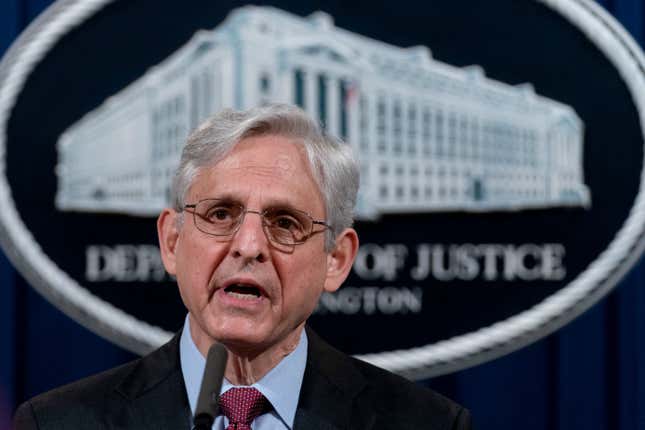
Less than a day after Derek Chauvin was convicted of murdering George Floyd, the U.S. Department of Justice announced a civil investigation into police practices in Minneapolis.
The DOJ will determine if the Minneapolis Police Department uses excessive force, engages in discriminatory conduct, and whether its treatment of people with mental health issues violates any laws, according to The New York Times. Additionally, the department will review MPD’s policies, training, supervision and use-of-force investigations, and will determine if its accountability systems prevent officers from abusing their authority.
Attorney General Merrick Garland said if the DOJ did find instances of improper policing, it would publish a public report. He also said the feds have the option of bringing a civil suit against the department and entering into a settlement agreement or consent decree.
“Most of our nation’s law enforcement officers do their difficult jobs honorably and lawfully. I strongly believe that good officers do not want to work in systems that allow bad practices,” Garland said in his statement Wednesday.
Keep in mind that this inquiry is separate from another investigation underway that is determining whether Chauvin violated Floyd’s civil rights. It was not expected that a federal jury would rule whether to indict the ex-cop before the state trial had concluded.
Last week, Garland rescinded Trump-era limits on consent degrees the DOJ relied on to push police departments into resolving violations and misconduct. The court-ordered agreements rarely result in police officers facing punishment, but they do acknowledge abuses of power and force departments to overhaul their policies and training. Their main function is to change cultures in police departments, not to criminally charge offending officers .
In 2018, then-Attorney General Jeff Sessions signed a memo limiting consent decrees to the point that their utility was useless. One of amendments required that senior leadership had to sign off on the decrees and that they have an end date. Usually, a court would allow the decree to stay in place until it is necessary to remove it. Now that the decrees can be used more regularly, expect to hear the DOJ making more of these announcements looking into police practices across the country.

